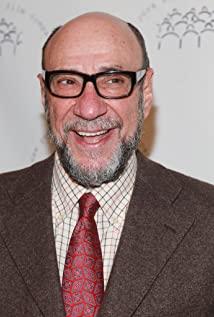This article 2018-02-15 was published in the DeepFocus public account
Text | Lycidas
There are always many boring people in cultural circles who are keen on weird topics.
"New Yorker" columnist Ian Crouch is definitely one of the best. In 2012, he published an article titled "Does Wes Anderson Hate Dogs?" "Does Wes Anderson Hate Dogs?" review article, starting with the puppy who got involved in a standoff in "Moonrise Kingdom" and tragically died, recalls Anderson's multiple violations of Hollywood's "taboos" in previous works. ”, the act of beating down a man’s good friend.
After the release of The Grand Budapest Hotel in 2014, Crouch took the opportunity to launch a sequel, Does Wes Anderson Hate Cats? (Does Wes Anderson Hate Cats?). Although there is a certain suspicion of hot spots, Crouch's article is also full of subtle arguments, which not only strongly refute some radical animal protectionists' doubts about Anderson, but also show the author's deep understanding of the theme and style of Anderson's films :
"...the disregard for canines is in keeping with the tone that has been consistent throughout Wes Anderson's films—slightly anti-social and lacking in sentimentality. Some critics have focused solely on the nuanced, fertile and charming creations Anderson has created. Fantasy world, but ignores the undercurrent of sin that lurks beneath the surface. Violence and suicide are common in his films. The catastrophe that happens to dogs also happens to human characters. Anderson chooses to add to the beloved dog. These necessary conditions that accompany life may be a reminder to us that no one is safe from fate."
"Pets play an extremely important role in human life, but at the same time, anyone who has accidentally flushed a goldfish down the sink or buried a dead cat in the backyard will know that pets can be thrown away, as frustrating as it is unimaginable. And in the end, human beings face the same fate of throwing it away. There is always a shadow of death circling in Anderson's films... It waits for everyone at the end, even the cat."
The idea of "disposables" that appeared in both articles may be carried over in Anderson's new film, "Isle of Dogs," which, after all, is about a group of exiled dogs. The background of the story is set in the apocalyptic future Japan. Due to the outbreak of canine epidemic threatening human beings, Mayor Kobayashi ordered all domestic pet dogs to be exiled to a desert island. The 12-year-old male protagonist flew a plane to the island alone. With the help of several puppies, he embarked on an adventure to find his dog.
Anderson, who has been away for four years, will bring this new film to the opening of the Berlin Film Festival. This is his second stop-motion animation work after Fantastic Mr. Fox, and it is also the first time in the 68-year history of the Berlin Film Festival that it is opened by an animation.
Still a reassuring Anderson recipe full of familiar elements, and still full of expectations: Tribute - this time, it's Kurosawa Akira and Rankin/Bus's Christmas animation special; Exotic - this is the second time Anderson will The background of the story is placed in Asian culture; style - similar graphics and character design to the last stop-motion animation "Fantastic Mr. Fox"; cast - dubbing lineup called "epic" by many media; crew - —Whether it’s Roman Coppola, Jason Schwartzman, and Nomura Nomura, who wrote the story together (the husband of Japanese actress Mayumi Sada, who is an actor/writer, who has appeared in Lost in Translation and "The Grand Budapest Hotel", and the Coppola family), the composer Alexandre Desplat, stop-motion cinematographer Tristan Oliver, and art director Adam Stockhausen, and even the film's distribution plan, They all continued the pace of the previous work smoothly.
In addition, it is also the first time that cats and dogs appear at the same time in an Anderson film. The two sides are also arranged on opposite sides of water and fire. The violent elements mentioned by Lenovo MPAA when rating "Isle of Dogs" must be fatal and injured. unavoidable. Crouch is probably already gearing up to write his "Does Anderson Hate Cats and Dogs" series after the release of this film.
【Revisit】
Wes Anderson: The Dreamer Who Forgot Time
In an interview in London before the release of The Grand Budapest Hotel in 2014, Wes Anderson made a quirky remark: "There are filmmakers, like John Huston and Luis Buñuel, who basically Died in the middle of filming. Now I definitely don't want to die young on my set. But what if I'm over ninety...?"
This self-talk from nowhere is very much like the elusive thoughts of any character in his film, a daydream that can fall into place anytime, anywhere. After a long while, he nodded his head as if he had made up his mind, as if he had given himself the answer.
Some reporters half-jokingly said that Anderson was not a qualified interviewee: he spoke in an unusual way, and always struggled with questions that could be answered with a simple "yes/no" - "But... to what extent? Does it count as 'yes'?" He hated both talking about himself and being rude by showing it.
If you've seen his videotaped interviews, you've probably had a Woody Allen-esque "Um...ah...actually...I think I should say that...I usually...I think...I want to say... "This kind of hesitation is not unfamiliar, and it is probably the case with people who are overthinking. The phrase "human like a piece" fits Anderson unexpectedly. He is not only a traveler from other time and space, but also obsessed with constructing a fictitious fantasy that is shiny and bright like Christmas decorations. He is also the most acute observer of human society, ridiculing and affectionate. and compassion are intertwined in the narrative text with unique personal temperament without leaving any trace.
"Just five steps from reality," Anderson describes his world.
Twenty years and eight feature films, Anderson has become one of the most recognizable names in American independent film. The mainstream film awards do not hesitate to praise him, and a group of media and film critics who emphasize artistry represented by "Cinebook" are also happy to label him an "auteur" early: a man who puts his own The individuality and consideration, the unremitting pursuit of the aesthetic style and the theme are deeply imprinted on the filmmakers in each work.
Therefore, he deserves to be considered the primary author of the film, regardless of the contributions of other collaborators. The abundance of consistency throughout his career attests to Anderson's authorship—the film's inherent sophistication and iconic imagery, undeniable audiovisual achievements, caring for and depiction of alienated groups on the margins, and decades of Day by day, I return to my childhood again and again to seek a story structure and character form with strong empathy.
Cate Blanchett, who worked with Anderson on "Life in the Water," said of him: "I often wonder, is he Dorian Gray himself? He's from another era, but with complete sincerity. "
Going beyond the dreamy and colorful visual surface of Anderson's works and going deep into the center of his self-contained style system, what kind of inhumane reality does this persistent dream builder beyond the passing water and light?
Melancholy core wrapped in icing sugar
"Macarons", "Doll's House", "Candy Box", "Pastry"... Wes Anderson's films are often compared to something soft and sweet. Visually, a high degree of formalism (emphasis on color, line, shape and texture) pervades all the details of his films. The almost obsessive symmetrical composition, the highly saturated nostalgic color scheme, and the extremely stylized camera movement have long become Anderson's most well-known labels. Paired with comical characters and exaggerated performances, the audience who walked out of the theater after laughing might think without thinking that they had seen a sweet and funny farce.
People who only indulge in visual spectacles fall into this "trap" without exception.
Anderson's films always have a pessimistic core beneath their nuanced surfaces, and his repeated stories are always about the loss of the world - the disappearance of childhood, the broken family, the collapse of self-knowledge, and even the destruction of civilization. The role he plays is often a puppet master who hides behind the scenes and watches the stage with cold eyes, letting the abyss in each character swallow them, or watching the big historical background brutally twist the powerless individuals.
In "The Grand Budapest Hotel", the author took the initiative to find the writer to tell about his old age, and depicts the adventures shrouded in heroism in his youth in detail, and the end of the film explains the fate of Gustave and Agatha. But the indifference is sharp as a mockery - "In the end they shot him." "A ridiculous little disease that can be cured in just a week today. But in those days, millions of people died because of it." Impermanence, we All you can do is accept the loss, or live in the abyss and never come out again.
The swirling shadows of violence and death are the undercurrents in each of Anderson's works, the slashed wrists of Rich Trenbaum in "The Geniuses", the bright red blood on the sea around the helicopter in "Life in the Water", and the "Crossing". The boy who drowned in the river in Darjeeling.
Whether the audience actively ignores the pain or accidentally misses it, these emotions always exist in Anderson's works. They are not heart-piercing joy and sorrow, but secret sadness that is silent and unexplained, even when heavy When the emotions came up, he immediately told a cold joke and hurriedly covered it up.
Once the viewer notices the hidden undercurrent of Anderson's film, it is like opening a Pandora's box, and can no longer get rid of this perception: the more delicate and beautiful the picture, the more lonely and sad the characters feel; the abnormal scene is no longer funny, but It is transformed into a reflection of anxiety and depression in people's hearts. Although the characters in it are calm and cannot distinguish their emotions, they can vaguely touch the growing estrangement and loneliness in their tightly wrapped hearts through the picture. So real like never before.
Anderson’s meticulous and even over-engineered scheduling is essentially at odds with the fast mobility advocated by late capitalism, but the middle-class distress and lack he describes are the result of a series of accidental and random events, and such an invisible force is precisely the His way of expressing change and hope. Wrapping the tragedy in icing sugar may also be evidence that he still chooses to trust life after struggling.
difficult family dilemma
If you have systematically watched Wes Anderson's works, it is not difficult to realize the importance of the concept of "family" in his works. Although the characters and locations are far apart and the plot construction patterns are not the same, the core of the narrative will always exist. Inseparable family complex. Regardless of whether the family is connected by blood or not, most of them are on the verge of being broken, and members are often estranged from each other, each with a certain kind of loneliness that is so far away and untouchable.
The failure and re-establishment of the bonds between siblings in Bottle Rocket, Darjeeling and The Genius, the classic father-son relationship dilemma in Life in the Water and Fantastic Daddy Fox, and even the new work Dogs In "Island", the protagonist teenager and the villain with the same surname, Mayor Kobayashi, are also very likely to be father and son; in "Youth and Youth", "Moonrise Kingdom" and "The Grand Budapest Hotel", adults who are not related by blood become the protagonists through the identity of "mentors" parent's agent. No matter what mode it is presented in, every character shackled by family relationships without exception falls into deep confusion in the face of complex and difficult emotional entanglements.
Anderson's portrayal of family largely projects his own experiences, making it the most intimate part of his films.
In his family's default structure, parents are often divorced or at least one absent, and the number of siblings is usually three. (Not only Anderson himself, but also his friend Owen Wilson's family are also three brothers.)
His parents divorced when he was eight years old. He lived with his elder brother Mel and younger brother Eric with his mother, an archaeologist. And Anderson, who was suffering because of his parents breaking up at the time, made trouble at school and was an out-and-out problem child. Max Fisher in "Youth and Youth" has more or less his own shadow.
And even this seemingly unruly boy was stabbed by a book titled "How to Deal with Problem Children" found on top of his father's refrigerator; The last straw for Xi's decision to run away from home.
In Anderson's middle school years, the "mentor" who replaced his father appeared. A teacher agreed with him that if he could maintain a good performance for a semester, he would be allowed to rehearse a play, just as Max Fisher finally rehearsed himself at the end of the film. drama.
His relationship with his father must also be very complicated: on the one hand, his father was the enlightenment of his film career. He first gave him a super 8mm camera. He and his brother made countless short films together, but unfortunately those sounded very interesting. The film was later all lost in a car theft accident. His father still subscribes to his Google Alerts. Young Anderson, on the other hand, went to work at his father's advertising agency and ended up getting fired, reminiscent of Ned Plimpton in "Life in the Water," who was ostracized from his father's group.
Anderson, who is nearly 50 years old, has always been cautious and knows how to hide his emotions just like the characters he created. Most of these past events are kept silent in public, at most a light sentence: "At the time, I didn't want people to know about (the divorce of my parents). .Although there were often such things in the family around at that time, I still hoped that it would not happen to me." But only by counting the crosses, I know that those old wounds still exist, those confusions and helplessness still exist, maybe that's why he only once This theme is returned to in the works.
"The Genius" is probably Anderson's most extreme and naked presentation of his understanding of the family, a dark story full of drugs, plane crashes, suicides, terminal illnesses, racially provocative remarks and morally incestuous non-relatives. Sibling romance. The director poignantly portrays the hidden forces in family relationships, and the love-hate relationship that is deeply rooted in the love that shapes life, yet twists it with his own hands.
Anderson's logic as a writer revolves around the concept of youth, perhaps because his films tend to talk about childhood—real childhood and childhood delayed by adults. Facing the abandonment of his family, his characters inevitably have the idea of escape and the need to build other communities to replace the family. Under Anderson's lens, the fragmented family of origin often restructures into a new family form as the plot progresses, a collective portrait with redemptive qualities. His films explore the loss, disintegration, rebirth, and mysterious nature of family structures.
The loneliness and rebellion of an outsider
The characters who inhabit Wes Anderson's fictional world are mostly, as William Carlos Williams puts it, pure American with a little bit of madness, a loser to some, a loser to others dreamer.
The only thing that can be confirmed is that, without exception, they are on the opposite side of the established order, facing the social system that makes them both extremely long for and despise, and choose the role of rebels, but they are at a loss in the face of disillusioned ideals and can only choose. Confronting reality, in the end all their efforts to rebuild themselves are often suppressed by greed and power or crushed under the wheel of history.
There is a marginalized or even fairytale-like quality in these characters - as an outsider, watching the intensification of internal conflicts in the eager to join group and being overwhelmed. They are representatives of the middle class. They usually have no worries about livelihood and material pursuits, but they are obsessed with their own grand plans, naive or absurd, and their biggest enemy is always themselves.
They're Dignan in Bottle Rocket, Max Fisher in Teenage Boys, Eli Cash in The Geniuses, Steve Seyle in Life in the Water Sue and Ned Plimpton, Francis in "Crossing Darjeeling", Father Fox, the eloquent couple in "Moonrise Kingdom", Gustav in "The Grand Budapest Hotel". But maybe, they're both Wes Anderson.
In Anderson's classic plot, there must always be at least one honest and fearless borderline teenager, a bored but still responsible middle-aged man. The children he shoots are more adults than adults, and age doesn’t seem to have much to do with intelligence and maturity in Anderson’s value system.
On the other hand, Anderson's ordinary little people are more or less in a dilemma between the glorious past and the embarrassing and lost reality: the young geniuses in "The Genius" are only left with the wreckage destroyed by the mediocre life; In "Life in the Water", Max, who came from a private school to a public school, still insists on wearing a private school uniform (Anderson himself had the exact same experience); in "Life in the Water", Steve, the once internationally renowned film director, even raised money to make a film to retaliate against his friends. Neither can; Zero, who has a wonderful history of adventure and rich fortune in The Grand Budapest Hotel, is in the end just an old man trapped in his memories.
Through Anderson's characters, the audience gets a glimpse of extremely sensitive and vulnerable souls, and the loneliness and devastation they experience is very similar to what we have experienced in front of the screen. Seeing the director smile and tease like this, the audience has to empathize with the people on the screen, not only sympathizing with them, but also in memory of themselves.
The reasons why these characters are confined to the moment always seem to lack reasonable explanations - the three brothers in "Crossing Darjeeling" have found their mother but are still confused about the future, and the author of "The Grand Budapest Hotel", although world-famous, is still a man who has never been seen again. Revisiting the old place and regretting it. The individuals who once complemented each other in the sea of people still end up scattered in the end. Their absurdity and paranoia constitute the central contradiction of Anderson's tragicomedy. His characters are always on a narrower and narrower path, facing the anxiety of identity dislocation, retreating from the initial embarrassing situation to a more extreme dead end, Desire to understand but can't ask for it, choose silence for fear of hurt, and finally alienate in order to escape intimacy.
Adventure, escape and return
When the Anderson brothers were young, they couldn't really venture out. They make up all kinds of storylines, build hideouts in the backyard, dig holes, hide and find interesting gadgets.
This adventure complex continues into Anderson's adulthood (perhaps he is still in a protracted adolescence like the character). A fascination with new things and danger forms the central plot of all Anderson's films.
His characters are often placed in an action that, no matter what the cause, is bound to derail: The three young men's never-ending crime plan in "Bottle Rocket"; the raging battle for a female teacher in "Youth"; "The Genius Family" Leroyle plays truancy with his three grandchildren; sets sail for revenge in "Life in the Water"; seeks his mother in "Crossing Darjeeling" and elopes in "Moonrise Kingdom"; fox repeats theft in "Fantastic Daddy Fox" old business; the battle for famous paintings in "The Grand Budapest Hotel"; and the search for a lost dog in the new film "Canis Island".
Without exception, the protagonist chooses to set out on his own initiative, walks farther and farther in his own extracurricular branches, and can never look back. But Anderson's characters have a typical postmodern context, and their adventures have nothing to do with survival and glory, nor do they harm society. Their exodus was purely a rebellion for no reason, an attempt to escape the mainstream and collective exclusion, and this humble and even sad desire constitutes their motivation, which is consistent with the nature of the character's "outsider".
The confrontation between individuals and institutions in Anderson's films seems to be analogous to the confrontation between contemporary American independent films and Hollywood. To a certain extent, the distinction they emphasize is nothing more than a struggle for symbolic power within the mainstream. Middle-class values still trumped artistic expression. Zooming into the socio-cultural level, the notion of youth as the vanguard of social change has been rampant since the 1960s, drowning the previous notion of class struggle.
This ideological change has spawned various subcultures closely related to the youth group, which have naturally become symbols of resistance to mainstream values.
The conclusion of Anderson's films is usually to say goodbye to the adventure and return to the right track. The rebellious youth reconciles with their fathers, and the fathers who fled for a while also return to the family. After the hero's dream dissipates, the protagonist returns to the family that has undergone adjustment and reconfirmation, mixed with feelings of relief and loss. in interpersonal relationships. The meaning of adventure is realized in the completed ritual, challenging the mediocre life and social morality to reveal the behavior itself, in the final analysis, it is still a big dream, and when you wake up, everything is normal. In this sense, the core of Wes Anderson's films is still extremely traditional American teenage values.
View more about Isle of Dogs reviews











